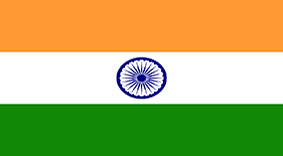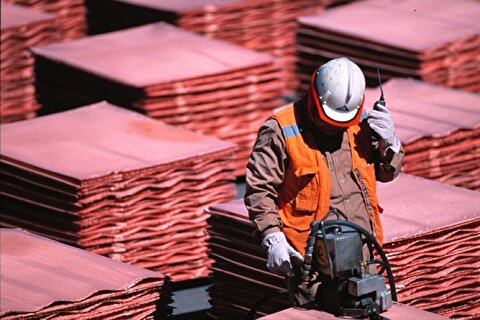
India, Severstal to boost EU HRC exports

On first inspection the review seems slightly underwhelming, particularly as many were bracing for a move to country-by-country quotas, but it will significantly constrain volumes for Turkey, while easing access for others. Under the proposal, which will need to be approved by member states before it comes into effect on 1 October, any one country can only supply up to a maximum of 30pc of overall EU HRC imports.
In effect, this means total imports per country are capped at 635,053t for the period 1 October to 31 December 2019, falling to 628,150t for the subsequent two quarters (see table). In the October-December quarter this would average 211,684t per month and per country, or a total of 705,614t per month for all origins.
The EU imported just over 3.7mn t of HRC in January-May 2019 and just under 8mn t in full-year 2018, according to data from the European Steel Association. Turkey's share over the first five months of the year amounted to 43.8pc, up from 35.9pc in 2018.
The highest monthly amount imported from Turkey was 497,010t in January 2019, and the lowest was 166,379t in February 2018. Turkey's average monthly imports from January 2018-May 2019 were 265,565t, but so far in 2019 its average has been substantially higher, at 329,448t. The country's share of total imports was 53pc in January, 43pc in February, 42pc in March, 34pc in April and 45pc in May according to Argus calculations, routinely above the suggested 30pc cap.
Other countries are set to benefit from the 30pc cap, unless they are constricted by anti-dumping duties as is the case with Brazilian, Russian, Ukrainian and Iranian companies. The only Russian mill which has a duty low enough to allow it to continue selling regularly into the EU is Severstal. Russia's share of the total imports in the first five months of the year was 16.2pc, which means Severstal could theoretically almost double its exports to the continent.
Indian suppliers are also facing an advantageous situation, with just 12.8pc of total EU imports being of Indian origin in this period, as are other countries such as Taiwan, South Korea and Serbia.
While these countries can theoretically offset the reduced supply from Turkey, few can sell into the EU with the same lead times. In addition, imports from further afield make more sense for large lots, which could impact buyers of smaller quantities.
Nevertheless, the reduction in import volume from Turkey might not be enough to support the domestic European market over the fourth quarter. Imports have been dwindling in recent months because of low domestic prices, while exports into Turkey have been ramping up. There is still too much inventory in the automotive supply chain, not of HRC but of the finished products manufactured by sub-suppliers from coil substrate. This is denting demand for replacement material. The macroeconomic environment also remains shaky, and the high costs of recent months — which mills have not passed off — are ebbing fast, meaning less of a margin squeeze.
But the review could at least be one more leveraging tool for mills alongside announced production cuts, as they look to provide a firmer footing for next year's contractual negotiations.


Newmont nets $100M payment related Akyem mine sale

First Quantum scores $1B streaming deal with Royal Gold

Caterpillar sees US tariff hit of up to $1.5 billion this year

Gold price rebounds nearly 2% on US payrolls data

Copper price collapses by 20% as US excludes refined metal from tariffs

St Augustine PFS confirms ‘world-class’ potential of Kingking project with $4.2B value

B2Gold gets Mali nod to start underground mining at Fekola

Goldman told clients to go long copper a day before price plunge

Copper price posts second weekly drop after Trump’s tariff surprise

Codelco seeks restart at Chilean copper mine after collapse

US slaps tariffs on 1-kg, 100-oz gold bars: Financial Times

BHP, Vale offer $1.4 billion settlement in UK lawsuit over Brazil dam disaster, FT reports

NextSource soars on Mitsubishi Chemical offtake deal

Copper price slips as unwinding of tariff trade boosts LME stockpiles

SAIL Bhilai Steel relies on Danieli proprietary technology to expand plate mill portfolio to higher steel grades

Alba Discloses its Financial Results for the Second Quarter and H1 of 2025

Australia weighs price floor for critical minerals, boosting rare earth miners

Australia pledges $87M to rescue Trafigura’s Nyrstar smelters in critical minerals push

Fresnillo lifts gold forecast on strong first-half surge

US slaps tariffs on 1-kg, 100-oz gold bars: Financial Times

BHP, Vale offer $1.4 billion settlement in UK lawsuit over Brazil dam disaster, FT reports

NextSource soars on Mitsubishi Chemical offtake deal

Copper price slips as unwinding of tariff trade boosts LME stockpiles

SAIL Bhilai Steel relies on Danieli proprietary technology to expand plate mill portfolio to higher steel grades

Alba Discloses its Financial Results for the Second Quarter and H1 of 2025

Australia weighs price floor for critical minerals, boosting rare earth miners

Australia pledges $87M to rescue Trafigura’s Nyrstar smelters in critical minerals push

Fresnillo lifts gold forecast on strong first-half surge














